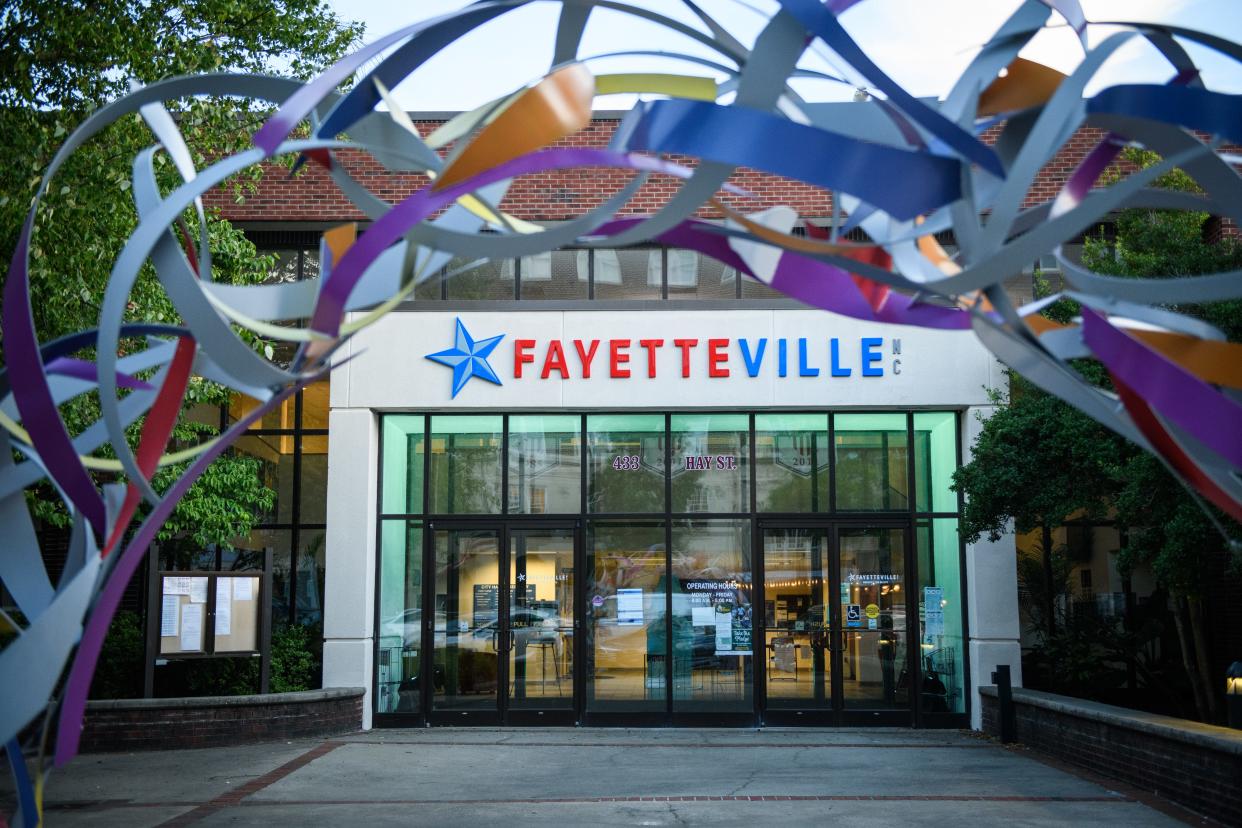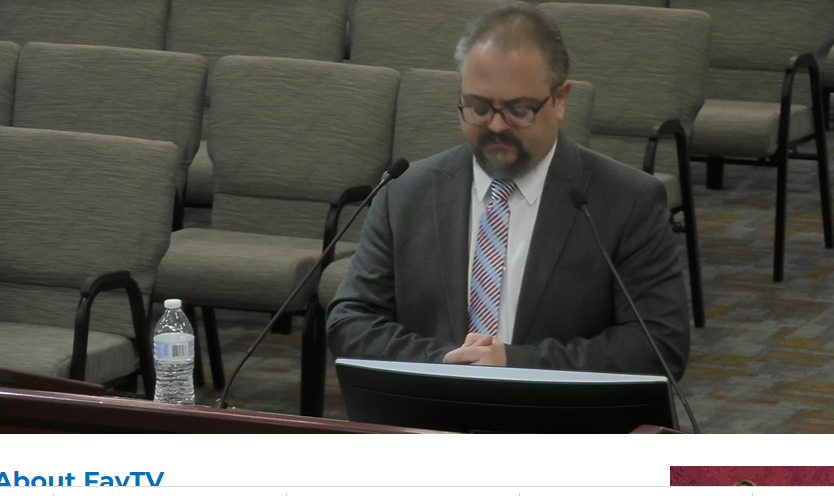Fayetteville invests $2.5M to go toward minority-owned businesses

Editor's note: This story has been corrected to attribute remarks made by County Attorney Rick Moorefield.
Minority-owned businesses in Fayetteville will soon find help and financial assistance to grow their companies after the Fayetteville City Council last week unanimously approved contributing $2.5 million in American Rescue Plan funds to match a state grant that expired at the end of December.
The community equity venture fund is designed to help minority businesses “overcome hurdles” and traditional lending models by providing noninterest-bearing capital, said Robert Van Geons, president of the Fayetteville Cumberland County Economic Development Corp.
“The fund’s goal is to grow 10 firms by 10 or more employees each within five years,” Van Geons said during a special called meeting Tuesday night.
More:'So much potential': Murchison Road businesses get a boost from city grant
The state of North Carolina appropriated $2.5 million to community development foundations to launch the fund, contingent on securing equal matching funds by Dec. 31, Van Geons said.

Council members initially approved a $1.25 million match subject to legal review at their Dec. 12 meeting, and the other $1.25 million was expected to come from Cumberland County.
County commissioners were split 4-2 at their Dec. 19 meeting and did not approve moving forward with the county’s match.
Commissioners Jimmy Keefe and Michael Boose were in favor of the match, while Chairwoman Toni Stewart, Vice Chairman Glenn Adams and Commissioners Jeannette Council and Jones opposed.
Van Geons told commissioners that $12,500 could be withdrawn per new job created, but if the job were not maintained, those funds would have to be paid back.
Adams said it sounded as if the county would just be keeping its own funds that it had appropriated.
County Attorney Rick Moorefield said because county funds can not be used to make loans or grants, the $12,500 repayment clause was included in the proposed agreement.
Adams said it seemed as if the agreement were trying to get around state statute.
Stewart said she was not comfortable with voting on a matter if a disclaimer is needed.
At the city council’s meeting Tuesday, City Manager Doug Hewett told council members that matching funds from the city will not come from the city’s taxpayer-generated general fund but rather the American Rescue Plan Act the city previously received.
More:How will Fayetteville spend its money? Analyzing City Council's early budget and strategy
Information technology and renovation projects the American Rescue Act Plan funds were originally going to cover will be delayed to allow for the match.
“But it’s not very often that for $2.5 million, you get $2.5 million,” Hewett said.
Van Geons told city council members that the county had sought to “structure their engagement differently,” and that there was not enough time to go back to the county.
How the fund will help minority business
During the council’s Dec. 12 meeting, Van Geons said that the economic equity venture capital fund and its state match was created by the North Carolina General Assembly to promote locally-owned minority businesses providing services to government entities.
Mayor Mitch Colvin said a disparity study for the city revealed that only .06% of minority businesses conduct business with the city government.
Councilman Deno Hondros said he thinks the economic equity venture capital fund will help increase the percentage.
“This is going to help those small entrepreneurs, those minority owners scale up to be able to provide the services the city is needing,” Hondros said.
The fund, Van Geons said, will help remove the “historic barriers of funding for small, minority-owned businesses.”
An example, he said, might be a small business that provides interior paint services to the city but suddenly needs a paint truck to reach upper levels.
Van Geons said he’s heard of instances of local business owners selling trees from their family land just to cover the cost of doing business.
The economic equity venture fund would provide that capital. Companies will be required to create a certain number of jobs to have the debt forgiven, Van Geons said.
Priority would be given to minority-owned small businesses operating within low-to moderate-income Census tracts followed by businesses that employ individuals from those Census tracts.
“We are initially starting with focusing on companies that can serve a public need, that can keep local dollars local and provide those goods and services to our institutional partners,” Van Geons said.
Van Geons said the fund will be managed by the nonprofit Cumberland Community Development Foundation which will work with partners like Fayetteville State University and the Center for Economic Empowerment and Development to help small businesses develop a business plan if one is not in place.
More:Fayetteville State University launches 'first-of-its-kind' entrepreneur and business hub
City staff members, local and business advisories and some private sector companies would help mentor the companies, Van Geons said.
“Our goal is to cradle them, and that’s one of the other reasons why we are starting and beneficial to supplying local opportunities,” he said.
Staff writer Rachael Riley can be reached at rriley@fayobserver.com or 910-486-3528.
This article originally appeared on The Fayetteville Observer: How minority businesses can use debt forgiven loan in Fayetteville

